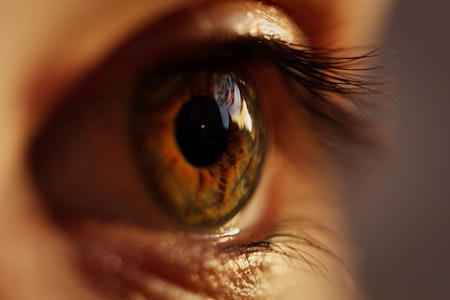Vision, for many people, is one of the most precious of the five senses. It allows you to get around more easily, read books and cards, and look at the faces of the people you love most. As with all the other senses, vision tends to become less crisp with age. In fact, the National Center for Health Statistics estimates that approximately 13.5% of adults in the United States ages 65 and older have vision loss. Here are the most common causes for seniors to lose vision, in no particular order.
Glaucoma
Glaucoma is a disease that affects the optic nerve in the eye. Usually, it occurs when fluid builds up on the front portion of the eye. As the fluid pools, it places pressure on the inner eye and damages the optic nerve.
There are two main types of glaucoma: primary open-angle glaucoma and angle-closure glaucoma. The first type is the most common, and it tends to occur gradually. The second type is less common, but far more serious. It usually comes on suddenly and can cause permanent vision loss if it is not treated right away.
For people over 60 years of age, glaucoma is the leading cause of blindness. The good news is that the condition can be prevented if treatment is sought early.
Age-Related Macular Degeneration
As you age, you’re more likely to develop vision loss from age-related macular degeneration. This condition causes loss of sight in the center of your field of vision. It’s also one of the leading causes of permanent vision loss in people aged 60 and older.
Age-related macular degeneration happens when the macula, or middle portion of the retina, wears down. As it does, it causes blurry vision that tends to progress with time. There are two main forms of age-related macular degeneration: dry form and wet form. The dry form type occurs when drusen, or yellow deposits, form in the macula and distort or dim vision. The wet form happens when blood vessels beneath the macula leak fluid into the retina. This distorts vision and can create blind spots. Over time, the bleeding blood vessels can begin to scar, which frequently leads to permanent central vision loss.
If you have any symptoms of macular degeneration, including blurry vision or dark areas in the center of your vision, go to your eye doctor immediately. If diagnosed with the condition, you’ll need to make regular eye doctor appointments to manage it as much as possible.
Diabetic Retinopathy
Seniors with diabetes have an increased chance of developing an eye condition called diabetic retinopathy. This condition happens when the blood vessels in the retina are damaged by high blood sugar. Over time, the blood vessels can become inflamed and begin to leak. They can also close off completely, which prevents blood from passing through to the eye. All of these issues can affect your vision or cause total loss of sight.
Symptoms of diabetic retinopathy usually affect both eyes and may include poor night vision, an increasing number of “floaters,” or “washed-out” vision. It’s very important to see your eye doctor if you experience any of these symptoms so you can receive treatment.
Cataracts
Cataracts typically develop slowly over years and they can make it seem like you’re viewing the world through a cloudy window. Cataracts are characterized by a clouding of the eye lens. There are different types of cataracts, but fortunately, most can be removed with a simple surgery.
Special Offer
Before we wrap up, I wanted to tell you about a little-known eyesight vitamin that's been used by professional baseball players for decades...
And you can get it for 50% off today!
Researchers at the University of Georgia recently discovered that this unique nutrient can help aging adults protect and restore their vision.
And best of all, studies show it can “wipe away blurry vision” in as little as 15 minutes flat!
Learn more here:
>> “Windex Trick” for Sharper Eyesight (try it now with 50% off)



Thank you so very much for this helpful information. However, I live in the UK and cannot afford amy of your Treatments. Thanks anyway. I know I have Cataracts in the early stages my optician told me. But I am claustrophobic and cannot bear anyone near my face unless they knock me out. My Local Hospital would want me to be awake for it even though they only do one eye at a time. I could not sit there and let them touch my eye. I am 73 and will wait. They are not giving me any trouble yet. I love reading your Advice. Thank you Janet
my problem is I have a dry eye that is my problem